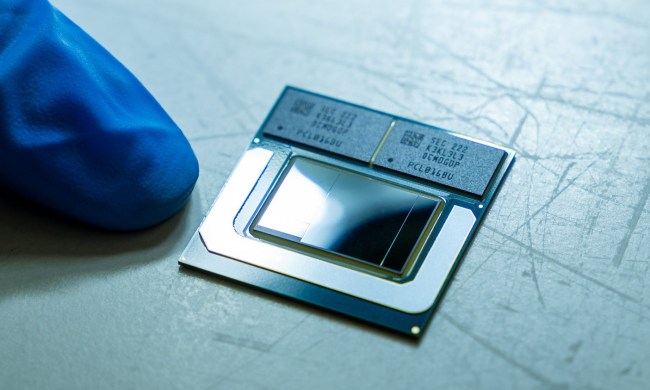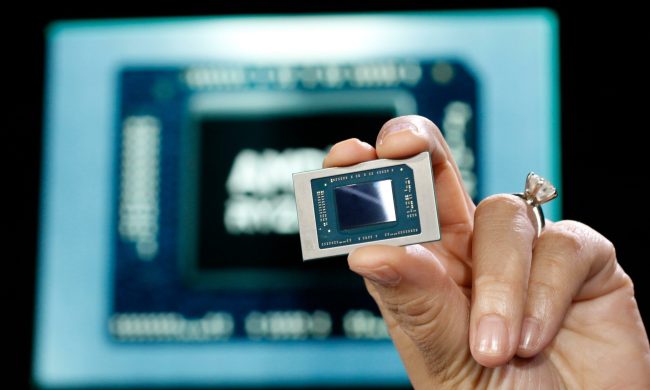The leaked Alder Lake benchmark train isn’t stopping. As we near the end of 2021, which is when Intel has said Alder Lake will launch, leaked benchmarks continue to offer a look into the performance of the upcoming range. Most recently, we got an idea of how the processors will stack up in benchmarking staple Cinebench — and the results suggest Alder Lake could be faster than all available desktop CPUs.
Like a lot of benchmark leaks, this one comes free of context. Known Twitter leaker @9550pro shared two screenshots of results in Cinebench. The interesting result comes from Cinebench R23, which is the most recent version. The screenshot isn’t too forthcoming, blocking out the multi-core score and multiplier ratio entirely.

It also blocks what looks like a fourth digit on the single-core result. It looks like the single core score is 2,05x, with the last digit blocked. If that’s true, Alder Lake’s single-core performance could surpass every consumer desktop processor currently available. According to data from ComputerBase, the top-performing Core i9-11900K only reached a single-core score of 1,697.
Earlier this week, other leaked Cinebench R23 results showed the Core i9-12900K matching AMD’s Ryzen 9 5950X. According to the leak, Alder Lake could best AMD’s top chip by as much as 21% in single-core benchmarks, though it’s important to take the leaked number with skepticism.
Alder Lake is rumored to feature up to a 20% increase in single-core performance. Using the data from the leak and ComputerBase, the Cinebench result represents a 20.8% increase at its lowest. This type of result isn’t out of the realm of possibility, but there are a couple of critical factors missing from the screenshot.
First, we don’t know what the actual result is. Although it looks like the fourth number is blocked out, we have no way to confirm that there’s a fourth number at all (outside of comparing it to a normal Cinebench R23 result). More importantly, the screenshot doesn’t show the multiplier ratio.
Basically, we don’t know if the test was run with an overclocked processor. Since overclocking boosts the speed of each core, it can have a big impact on single-core benchmarks. The leaked result is possible given what we know about Alder Lake, but it might not be what you see with a stock part.
Regardless, it’s important not to take prerelease benchmarks too seriously. At this point, performance data is at its most unreliable point. Intel will likely provide benchmarks when it lifts the curtain on Alder Lake, but we recommend waiting for third-party testing before drawing any conclusions about performance.
Leaked benchmarks suggest Intel might be taking the fight back to AMD. Alder Lake represents a shift in Team Blue’s design, moving to a hybrid architecture similar to ARM while shrinking the manufacturing process down to Intel 7, formerly known as 10nm Enhanced.
We don’t have word on when Intel will launch Alder Lake yet. Rumors suggest the flagship chip, the Core i9-12900K, will feature 16 cores and 24 threads, split across eight performance cores and eight efficient cores.



